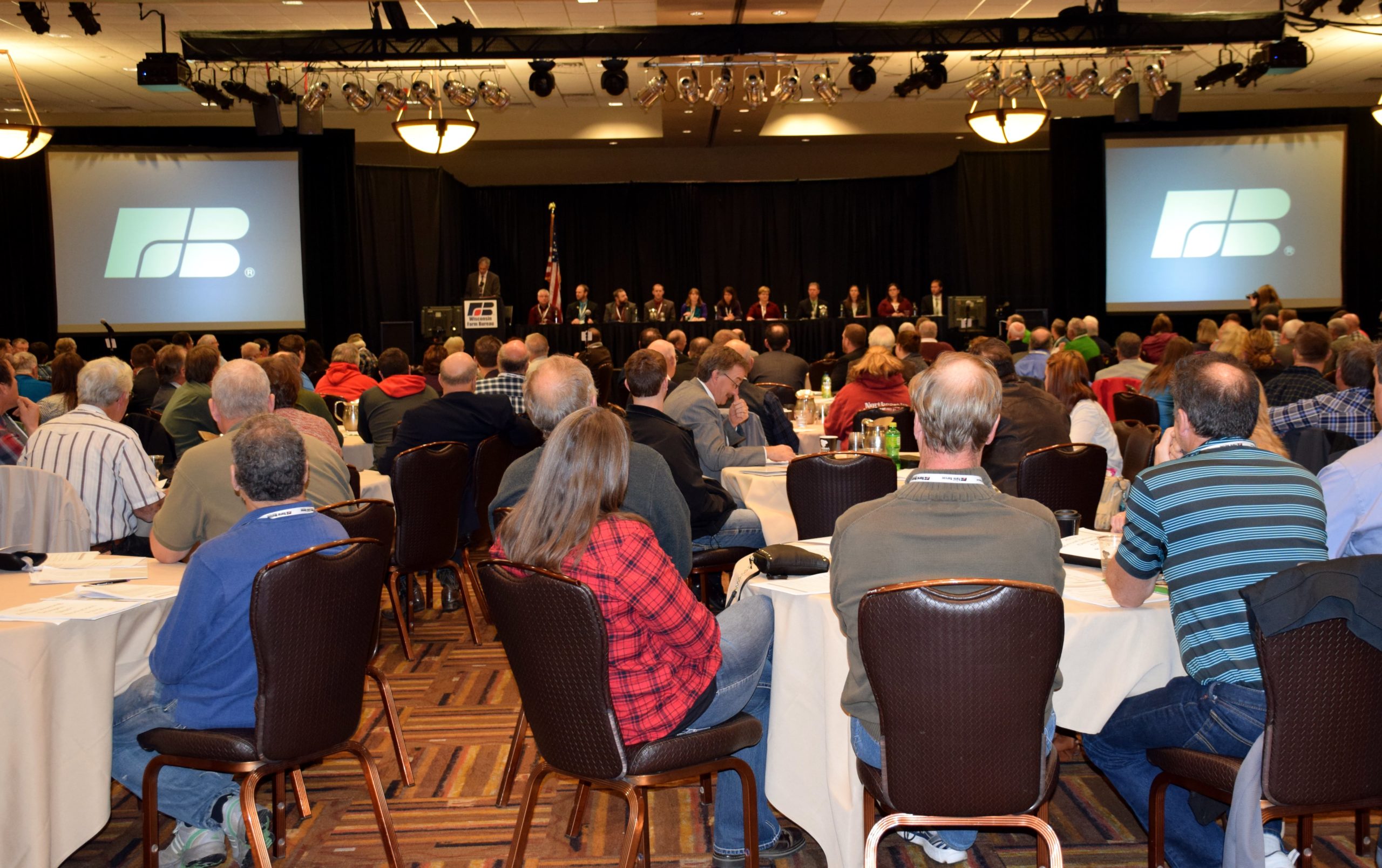Delegates at the Wisconsin Farm Bureau Federation’s 97th Annual Meeting in Wisconsin Dells established new policy directives for the organization on Monday, December 5.
Farm Bureau delegates adopted the policies that will guide the legislative agenda for the state’s largest general farm organization in 2017. Resolutions were submitted by delegates as part of a grassroots policy development process.
 Recognizing the importance of natural resources and the environment, delegates opposed any type of blanket regulation that would encompass the entire state because of the variations in karst types throughout Wisconsin. Regulations should be specific to the unique areas affected.
Recognizing the importance of natural resources and the environment, delegates opposed any type of blanket regulation that would encompass the entire state because of the variations in karst types throughout Wisconsin. Regulations should be specific to the unique areas affected.
Delegates displayed frustration with the current federal Dairy Margin Protection Program. After considerable in-depth discussion, they concluded the need for an improved program leading up to the 2018 Farm Bill.
Delegates supported an increase in the overall appropriation for the broadband grant program. They supported improving and upgrading the strength and reliability of coverage to enable efficient use of technology in farming practices in rural areas.
Delegates supported disclosure of wolf incidents on farms in Wisconsin by the Department of Natural Resources (DNR). The public information should be located on the DNR website, establishing warning areas when wolf packs are involved and providing instant email notification of all incidents.
In regards to livestock and animal welfare, delegates supported farmers in consultation with their veterinarians deciding and administering husbandry practices that are appropriate for their farm. They also supported more education for consumers on the merits of common animal husbandry practices. In addition, delegates supported the use of scientifically proven technologies for agricultural production practices.
Delegates from the Wisconsin Farm Bureau’s 61 county Farm Bureaus also voted to:
- Support the state’s livestock premise registration program.
- Support the state’s fence law.
- Support a process by which atrazine restricted areas can be repealed.
- Support the inclusion of wild parsnip on the state’s noxious weed list.
- Support funding for the Wisconsin Environmental Education Board.
On the federal level, delegates supported:
- Improving milk quality by lowering the somatic cell count limit to 400,000.
- The use of scientifically proven technologies for agricultural production practices.
- Farmers in consultation with their veterinarians deciding and administering husbandry practices that are appropriate for the farm.
- Requiring Congressional approval of any new federal regulation before final implementation.
The federal resolutions will be forwarded to the American Farm Bureau Federation for consideration at its annual meeting next month.
The Wisconsin Farm Bureau Federation’s policy is established by farmers through a structured policy development process.


Leave a Reply